A former exile and political prisoner in South Africa’s apartheid system, Ambassador Ms Marks today works hard to share the lessons of reconciliation from her homeland and the continent of Africa with the rest of the world
| OF the 54 countries on the African continent, only six have embassies in Thailand – Egypt, Kenya, Libya, Morocco and Nigeria. The sixth is the Republic of South Africa, represented by Her Excellency Robina Patricia Marks, who began her first ambassadorial assignment here in Bangkok in March 2012, building on a spectacular diplomatic record in South Africa and abroad. Throughout her posting in Thailand, Ms Marks has been active and visible at numerous functions. Straightforward in her words and goals, she is attractive and always well-dressed. Her customary bright-coloured dresses make this erudite lady always easy to find, even in a crowd, and her friendly manner assures that she doesn’t fade into the background. |
Ms Marks also has a look that defies pigeonholing. “A number of people have told me I don’t look African,” she said, laughing. “Often people seem surprised when they meet me. Some will even say ‘are you Thai?’ First I thank them for the compliment because Thai women are beautiful, and then I say to them that I am 100 percent South African.
“South Africa is a country of many tribes. I don’t think there’s a single person who can say they are not mixed. Well, in fact the entire world is mixed; there’s hardly any such thing as a pure race anymore. Globalization means that people travel and they marry people from other ethnic groups.
“Of course, South Africa is a country, and not a colour, and this is also why we are always referred to as the rainbow nation, made up of many people with a rich multicultural identity. It refers also to the coming together of people of many different nations, in a country once identified with the strict division of white and black.
“However, I am definitely South African,” continued Ms Marks, in conversation with the BigChilli, at the South African embassy at All Seasons Place on Wireless Road.
“On my mother’s side, I come from the same tribe as Nelson Mandela, which is Xhosa, and on my father’s side, I am Khoi – they are the original people of South Africa. The beautiful result is what you see in front of you,” said Ms Marks with wry amusement.
“I was born in Cape Town, the most beautiful city in the world. It’s surrounded by Table Mountain, declared one of the New Seven Wonders of Nature. I am very fortunate to have been born in Cape Town.
“I am the only child of a single mother and I came from a very poor background. My mother was a domestic worker who was forced by apartheid policies that limited black people to basic schooling, and menial positions, this stunting their potential and their life chances.
“I didn’t have access to many good educational opportunities when I was young, so the trajectory of my career is also a reflection of the country at that time. I became involved in the struggle against the apartheid at the age of 14. I have been always been a community and trade union organizer. I spent a brief time in exile in Zimbabwe and I was also a political prisoner in South Africa.
“Fortunately I was able to find the time to maintain my academic studies alongside spending time in the trenches building mass-based organizations.
“My life has been defined by efforts to share the lessons of reconciliation from South Africa and the continent of Africa with the rest of the world. In this regard we have been very fortunate, as we are able to share our experiences of nation building and reconciliation with Thailand in many forums. I know that the current government is looking at the example of South Africa among other countries in striving to bring about a Thailand that is peaceful, stable and fully reconciled with its past.”
“South Africa is a country of many tribes. I don’t think there’s a single person who can say they are not mixed. Well, in fact the entire world is mixed; there’s hardly any such thing as a pure race anymore. Globalization means that people travel and they marry people from other ethnic groups.
“Of course, South Africa is a country, and not a colour, and this is also why we are always referred to as the rainbow nation, made up of many people with a rich multicultural identity. It refers also to the coming together of people of many different nations, in a country once identified with the strict division of white and black.
“However, I am definitely South African,” continued Ms Marks, in conversation with the BigChilli, at the South African embassy at All Seasons Place on Wireless Road.
“On my mother’s side, I come from the same tribe as Nelson Mandela, which is Xhosa, and on my father’s side, I am Khoi – they are the original people of South Africa. The beautiful result is what you see in front of you,” said Ms Marks with wry amusement.
“I was born in Cape Town, the most beautiful city in the world. It’s surrounded by Table Mountain, declared one of the New Seven Wonders of Nature. I am very fortunate to have been born in Cape Town.
“I am the only child of a single mother and I came from a very poor background. My mother was a domestic worker who was forced by apartheid policies that limited black people to basic schooling, and menial positions, this stunting their potential and their life chances.
“I didn’t have access to many good educational opportunities when I was young, so the trajectory of my career is also a reflection of the country at that time. I became involved in the struggle against the apartheid at the age of 14. I have been always been a community and trade union organizer. I spent a brief time in exile in Zimbabwe and I was also a political prisoner in South Africa.
“Fortunately I was able to find the time to maintain my academic studies alongside spending time in the trenches building mass-based organizations.
“My life has been defined by efforts to share the lessons of reconciliation from South Africa and the continent of Africa with the rest of the world. In this regard we have been very fortunate, as we are able to share our experiences of nation building and reconciliation with Thailand in many forums. I know that the current government is looking at the example of South Africa among other countries in striving to bring about a Thailand that is peaceful, stable and fully reconciled with its past.”
| Empowering women “To be an ambassador is quite challenging and if you are a woman it becomes even more so. You remember Fred Astaire and Ginger Rogers dancing so gracefully in those old black and white movies? As the saying goes, ‘It’s one thing to dance like Fred Astaire, but Ginger Rogers did it backwards in high heels.’ This is exactly what it’s like for women when they become diplomats. Not only do they have to perform a difficult job, they have to do it in a world that is not prepared for a woman as head of mission,” Ms Marks said. “I often have the experience when I go to a function that people look at me and expect that my non-existent husband is the ambassador. This is something that drives me crazy! The world of diplomacy is so very male and the performance bench mark is based on a male profile and model. This is something we have to change. “Currently there are 10 female ambassadors serving in Thailand, out of 76 diplomatic missions. The UN prescribes 30 percent as a critical mass of women in leadership roles in any organization with a goal of 50 percent to ensure gender equity. For me the issue of women’s empowerment and gender equality is extremely important. In particular, I want to demonstrate to young women that they can also become diplomats and that they have the same potential as men. |
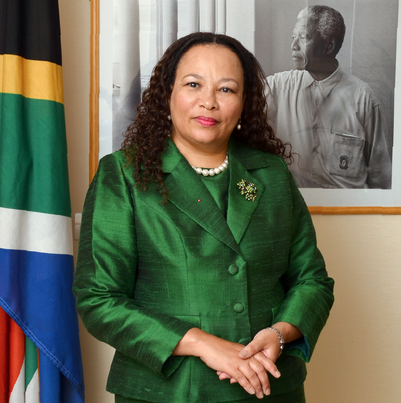
“What worries me a lot is that often women are punished for having ambition instead of being promoted. Often women who want to progress in their careers are labeled as unfeminine. The words we use to describe men’s and women’s actions are very different. If a man speaks up for himself, he is assertive, but if woman does the same she is called bossy, loud, strident, ‘opinionated’, or even worse, a ‘ball breaker.’
“Therefore, we have to think very carefully about things that we say and do things so that we don’t give young girls a message that they are less than boys or men.
“In my last assignment before coming here I represented my country at the UN on women’s issues and gender equality. One area which is very important to me is peace and security for women. When I was in South Africa, I helped to develop a national action plan on gender peace and security, in line with UN Resolution 1325 which speaks about the importance of having women involved in society and in the peace process.
“Peace is very important for my country and for Africa. South Africa today is a stable democracy, there are no armed conflicts, and good governance is in place through democratic systems. However, a small minority of countries in Africa still experience conflict. Yet of the 19 UN peacekeeping missions deployed across the world, only nine are in Africa which also demonstrates that far from the prevailing stereotype, the vast majority of 54 countries in Africa remain stable with good governance in place.
“We need reform of the UN’s multilateral system. Currently no country in Africa is among the permanent members of the Security Council. We believe that is something that should change. If Africa or South Africa is being discussed we should be at the negotiating table as well.
“We are one of the leading campaigners for the reform of the World trade Organization, the World Bank, the International Monetary Fund and the United Nations Security Council (UNSC). South Africa served twice as non-permanent sets in the UNSC and used its position to deepen the relationship and cooperation between the UNSC and the African Union of which we were a founding member.
“Our former Foreign Minister, Minister Dlamini-Zuma, currently serves as the African Union chair. South Africa is also members of two of the most significant South-South Formations – IBSA (India, Brazil, South Africa) and BRICS (Brazil, Russia, India, China and South Africa). This has enabled South Africa to leverage the promotion of the African Agenda and create new trade opportunities for value-added exports and investments. IBSA aims to increase trade volumes between the three countries to US$25 billion by 2015, and US$500 billion by 2015.
Duties
The ambassador is responsible for managing South Africa’s foreign relations in four countries. Besides Thailand, she is also accredited to Cambodia, Laos and Myanmar. She is a Permanent Observer to the United Nations Economic and Social Commission for Asia and the Pacific (ESCAP), Dean of African ambassadors in Thailand and coordinator of all African ambassadors in Southeast Asia for the purposes of the Thai-Africa Forum. She convened the first BRICS Partnership meeting of ambassadors held in Thailand in November 2014. This now continues on a rotational basis.
“We opened our first embassy in Thailand in 1983 on Sarasin Road and moved to this location in 2008. We are neighbours with the embassies of Italy, United Arab Emirates and New Zealand at All Seasons Place.
There are 28 staff altogether at the embassy. Seven including myself are from South Africa and the rest are Thai. Many of them have been with us right from the beginning, which is a testament to their loyalty and belief in what we are trying to achieve,” Ms Marks said.
“I feel I am managing my assignment of looking after four countries and other duties effectively and efficiently. I suspect it may be easier for ambassadors with spouses to support them and at times it can be difficult not to have that type of day to day support, but it also allows for clearer focus and a single-mindedness of purpose. And it is this purpose, underpinned by my values as a South African diplomat that also drives my passion and my commitment.
“What I always have in mind, there’s a woman that is sitting in an informal settlement [slum] in South Africa and someone tells her that I work at the Department of International Relations, and she asks me ‘what are you doing to help me to better my life?’ Therefore, the work I do must bring jobs, so she can send children to school, she can earn a living wage, she can have a decent life and livelihood and so help us to deliver on Nelson Mandela’s promise to make South Afri
ca a better place for all of its people.
“I want to deliver results for people who are poor, unemployed and marginalized in South Africa. That, in a nutshell, also describes my key performance indicators.”
Asked about her travels around Thailand after taking up her post, Ms Marks gave some examples. “I visited Ban Chang district of Chiang Mai province to see some of the artifacts discovered there. This was very important for me to see.
“I went to Lopburi province to attend the King Narai Fair. He is a very important king in the history of Siam and one who emphasized diplomatic relations with other countries.
“As for recent bilateral visits, the Thai Board of Investment sends a delegation to South Africa at least five times a year. We had the Election Commission of Thailand visiting our election commission to learn about our electoral practices. We also recently welcomed a delegation from the TICA [Thailand International Cooperation Agency]. There are delegations from South Africa coming to Thailand all the time,” she added.
Nelson Mandela
“For South Africans, the example set by Nelson Mandela has been extremely important. When he passed away a year ago it was a very sad time for us because he was, and remains, the father of our nation. But at the same time, we were pleased to organize a very big memorial service in conjunction with UNESCAP in Bangkok.
“The service was attended by many diplomats and distinguished guests, including former prime ministers of Thailand, as well as ordinary Thais who admired Nelson Mandela and felt inspired by his legacy. Of course, the United Nations had also taken the bold step to declare July 18 as UN Mandela Day, and so this day is commemorated across the world as we remember the legacy of this great leader.
“Mr Mandela visited Thailand on the invitation of His Majesty the King in July 1997, to thank the Thai people for their contributions toward ending apartheid. For us it was a very proud moment when the father of the Thai nation met with the father of South Africa to commit to continuing and strengthening the relationship between our two countries.
“To honor his legacy, we have started an annual Nelson Mandela Distinguished Lessons Series in Thailand. The first lecture, attended by about 300 people, was held last year last year at Chulalongkorn University. We were very pleased that former Prime Minister Anand Panyarachun delivered the first lecture.
“Part of the reason we are conducting the lecture series is because we want to remind the world of the legacy of ethical leadership and commitment to reconciliation and peace Mr Mandela demonstrated during his life. At his funeral last year there were 91 heads of states in attendance, together with members of 25 royal families. With regard to dignitaries in attendance, it was the largest funeral gathering for a former president the world has ever seen. Mr Mandela’s vision continues to be an inspiration for South Africans to ensure that our foreign policy contributes to building a better Africa and world, focusing on peace and development, reconciliation and nation building.”
“Therefore, we have to think very carefully about things that we say and do things so that we don’t give young girls a message that they are less than boys or men.
“In my last assignment before coming here I represented my country at the UN on women’s issues and gender equality. One area which is very important to me is peace and security for women. When I was in South Africa, I helped to develop a national action plan on gender peace and security, in line with UN Resolution 1325 which speaks about the importance of having women involved in society and in the peace process.
“Peace is very important for my country and for Africa. South Africa today is a stable democracy, there are no armed conflicts, and good governance is in place through democratic systems. However, a small minority of countries in Africa still experience conflict. Yet of the 19 UN peacekeeping missions deployed across the world, only nine are in Africa which also demonstrates that far from the prevailing stereotype, the vast majority of 54 countries in Africa remain stable with good governance in place.
“We need reform of the UN’s multilateral system. Currently no country in Africa is among the permanent members of the Security Council. We believe that is something that should change. If Africa or South Africa is being discussed we should be at the negotiating table as well.
“We are one of the leading campaigners for the reform of the World trade Organization, the World Bank, the International Monetary Fund and the United Nations Security Council (UNSC). South Africa served twice as non-permanent sets in the UNSC and used its position to deepen the relationship and cooperation between the UNSC and the African Union of which we were a founding member.
“Our former Foreign Minister, Minister Dlamini-Zuma, currently serves as the African Union chair. South Africa is also members of two of the most significant South-South Formations – IBSA (India, Brazil, South Africa) and BRICS (Brazil, Russia, India, China and South Africa). This has enabled South Africa to leverage the promotion of the African Agenda and create new trade opportunities for value-added exports and investments. IBSA aims to increase trade volumes between the three countries to US$25 billion by 2015, and US$500 billion by 2015.
Duties
The ambassador is responsible for managing South Africa’s foreign relations in four countries. Besides Thailand, she is also accredited to Cambodia, Laos and Myanmar. She is a Permanent Observer to the United Nations Economic and Social Commission for Asia and the Pacific (ESCAP), Dean of African ambassadors in Thailand and coordinator of all African ambassadors in Southeast Asia for the purposes of the Thai-Africa Forum. She convened the first BRICS Partnership meeting of ambassadors held in Thailand in November 2014. This now continues on a rotational basis.
“We opened our first embassy in Thailand in 1983 on Sarasin Road and moved to this location in 2008. We are neighbours with the embassies of Italy, United Arab Emirates and New Zealand at All Seasons Place.
There are 28 staff altogether at the embassy. Seven including myself are from South Africa and the rest are Thai. Many of them have been with us right from the beginning, which is a testament to their loyalty and belief in what we are trying to achieve,” Ms Marks said.
“I feel I am managing my assignment of looking after four countries and other duties effectively and efficiently. I suspect it may be easier for ambassadors with spouses to support them and at times it can be difficult not to have that type of day to day support, but it also allows for clearer focus and a single-mindedness of purpose. And it is this purpose, underpinned by my values as a South African diplomat that also drives my passion and my commitment.
“What I always have in mind, there’s a woman that is sitting in an informal settlement [slum] in South Africa and someone tells her that I work at the Department of International Relations, and she asks me ‘what are you doing to help me to better my life?’ Therefore, the work I do must bring jobs, so she can send children to school, she can earn a living wage, she can have a decent life and livelihood and so help us to deliver on Nelson Mandela’s promise to make South Afri
ca a better place for all of its people.
“I want to deliver results for people who are poor, unemployed and marginalized in South Africa. That, in a nutshell, also describes my key performance indicators.”
Asked about her travels around Thailand after taking up her post, Ms Marks gave some examples. “I visited Ban Chang district of Chiang Mai province to see some of the artifacts discovered there. This was very important for me to see.
“I went to Lopburi province to attend the King Narai Fair. He is a very important king in the history of Siam and one who emphasized diplomatic relations with other countries.
“As for recent bilateral visits, the Thai Board of Investment sends a delegation to South Africa at least five times a year. We had the Election Commission of Thailand visiting our election commission to learn about our electoral practices. We also recently welcomed a delegation from the TICA [Thailand International Cooperation Agency]. There are delegations from South Africa coming to Thailand all the time,” she added.
Nelson Mandela
“For South Africans, the example set by Nelson Mandela has been extremely important. When he passed away a year ago it was a very sad time for us because he was, and remains, the father of our nation. But at the same time, we were pleased to organize a very big memorial service in conjunction with UNESCAP in Bangkok.
“The service was attended by many diplomats and distinguished guests, including former prime ministers of Thailand, as well as ordinary Thais who admired Nelson Mandela and felt inspired by his legacy. Of course, the United Nations had also taken the bold step to declare July 18 as UN Mandela Day, and so this day is commemorated across the world as we remember the legacy of this great leader.
“Mr Mandela visited Thailand on the invitation of His Majesty the King in July 1997, to thank the Thai people for their contributions toward ending apartheid. For us it was a very proud moment when the father of the Thai nation met with the father of South Africa to commit to continuing and strengthening the relationship between our two countries.
“To honor his legacy, we have started an annual Nelson Mandela Distinguished Lessons Series in Thailand. The first lecture, attended by about 300 people, was held last year last year at Chulalongkorn University. We were very pleased that former Prime Minister Anand Panyarachun delivered the first lecture.
“Part of the reason we are conducting the lecture series is because we want to remind the world of the legacy of ethical leadership and commitment to reconciliation and peace Mr Mandela demonstrated during his life. At his funeral last year there were 91 heads of states in attendance, together with members of 25 royal families. With regard to dignitaries in attendance, it was the largest funeral gathering for a former president the world has ever seen. Mr Mandela’s vision continues to be an inspiration for South Africans to ensure that our foreign policy contributes to building a better Africa and world, focusing on peace and development, reconciliation and nation building.”
South Africa and Thailand
Ms Marks revealed two interesting things about the relationship between South Africa and Thailand that many people are unaware of. “The first record of Thai people in South Africa was about 300 years ago. They were Thai slaves taken from Ayutthaya to the Cape of Good Hope, which is where Cape Town is located. If you look at the records, you will see Thai names, besides which Siam is listed as the country of origin. As most people know, the practice of slavery in Thailand was stopped during the reign of King Rama IV.
“Another thing that may surprise Thai people is that if they came to South Africa before 1994 they would have been classified as non-white. This demonstrates how insane the apartheid system was. A hierarchy of inequality among people was established based solely on the colour of their skin. This is why justice and non discrimination is so important to us,” said Ms Marks.
She remarked that one big difference between Africa and Asia is that Asia’s population is aging on the whole, while Africa is a relatively young continent. This is certainly true of South Africa. “We have what we call a ‘demographic dividend’ because there are so many young people. They are tomorrow’s consumers and they are hungry for new products and services. Asia produces many of these products. Therefore, it makes sense for Asia and Africa to have a conversation with each other.
“In this regard, I am particularly pleased that the Thai government has reiterated its commitment to a high level of Thai-African engagement. We are looking at all aspects of our relationship to see how it can be enhanced, for example with regard to bilateral investment. I am also very pleased that the Thai government is committed to opening up more embassies in Africa. Currently Thailand has only six embassies in Africa and we are hoping that this will increase because it will greatly facilitate our ability to do business.”
Come a long way
“I was born into the apartheid system. In fact, the year I was born was when Nelson Mandela went to prison on Robben Island for the first time and spent 27 years incarcerated. A lot of my consciousness and the values that inform the work I do as the head of mission in Thailand is shaped by the injustice I saw in South Africa, the way in which people like myself were excluded from equal opportunities.
“That also explains why I see justice and fairness as being central to the work that we do as diplomats across the world. African diplomats are distinguished by the characteristics and qualities of integrity, loyalty, patriotism and passion.
“That’s why we do the work we do. South Africa was excluded from the world until 1994, when we held the first democratic elections. Prior to 1994 there were only about 36 countries that allowed South Africa to set up a diplomatic mission. Today we have 125 embassies across the world, and we are also home to the second highest number of diplomatic missions after the US. Currently we have 156 diplomatic missions in South Africa.
“We are one of the largest and certainly the most sophisticated economy on the African continent and the only African country that is a member of the G20. Its regulatory institutions remains the best on the continent, and its financial markets and banking institutions are deemed to be the strongest in Africa. We currently chair the G77 plus China.
“We hosted a very successful FIFA World Cup in 2010 and we have held a seat on the UN Security Council twice in the last six years. Other achievements include the largest rollout of antiretroviral drugs for HIV infected patients. Besides globalizing the vuvuzela – the plastic trumpet that intrigued everyone during the World Cup – one of our citizens was the first African in space.
“We are the first country in the world to have voluntarily stopped its nuclear program. Globally we are regarded as a moral authority on the issues of nation building and reconciliation. I can’t stress enough how important this is for us. I think that the world look at us with a great deal of respect because we have been able to turn away from bitter hatred of the past and come to a negotiated settlement. Equality is very important to us so we are building a South Africa that has no place for racist, sexist or discriminatory practices.
“We are particularly concerned about the rights of people who are marginalized. One example of anti-discriminatory practices is that weallow same sex marriages. That’s something we are very proud of and something that is entrenched in our constitution under anti-discriminatory practices. Another thing that stands out is that we are in the top ten in the world when it comes to the number of women represented in the parliament. In fact, Rwanda is the country with the highest number of women serving in parliament.
“Gender equality is very important for us and it is something that we promote in other countries as well. For example, when I came to Thailand I immediately convened a meeting of women ambassadors. We now meet regularly and discuss issues like human trafficking. We visit shelters for women who have been abused. We get together to celebrate International Women’s Day and often women leaders of Thai society are in attendance.”
“Many people identify South Africa with its vast hectares of vineyards and excellent wine. South Africa is a very old agricultural country but because of apartheid many countries boycotted our products. When we opened our markets in 1994, we started to export quite a lot of wine to Thailand. In fact, a huge percentage of all of the bulk wine produced by Siam Winery under the Mont Clair label is in fact sourced from South Africa, providing us with a valuable foothold in the local market. We also regularly promote South African wines here.
“Of course, we promote tourism as well. Kruger National Park is the same size as Wales. We’re very proud of it. You can observe rhinoceroses, cheetahs, lions, giraffes and elephants all roaming freely. We encourage people to come to South Africa.
“About 10,000 Thais travelled to South Africa in 2014, and about 80,000 South Africans visited Thailand. It is the second most popular holiday destination for South Africans after Mauritius. Of course, the figures are very small in comparison to some other nationalities but for us it is quite significant and grows.
“In this regard, we are particularly concerned that Thai Airways suspended flights to South Africa. I had a meeting with the Thai Minister of Transport, and he assured me that the suspension will be lifted in a year’s time. But we are worried that it will have a lasting effect on tourism between South Africa and Thailand. We hope that the suspension will be lifted. It is a pity because it means that THAI now doesn’t fly to any country in Africa. This is not good for Thai-African relations, and we hope it will change.
“We don’t have a reliable, updated record of how many South Africans are living in Thailand because they don’t register with the embassy. Like many embassies here, we find that our nationals only tend to visit us if they experience some consular distress, which fortunately is few and far in between. Of course, there are many Thais living and working in South Africa either as welders, electricians and other tradesmen.
“Muay Thai has a very active following in South Africa and there is a group of Muay Thai boxers there. It is a good activity to divert young people to a healthy lifestyle and as a diversionary activity. Our former deputy foreign minister is a patron of Muay Thai in South Africa. We have a couple of boxers who always come here and sometimes lose against Thai boxers, which makes us very sad,” said Ms Marks.
Clearing misconceptions
Asked about the pros and cons of her time in Thailand, Ms Marks said without hesitation: “The biggest disappointment is how people in Thailand see South Africa and Africa as a whole,” she said, adding that part of this relates to a general lack of knowledge of South Africa and Africa here. The ambassador was smiling broadly when she said this, as was her Thai secretary.
“I have often had to tell people that South Africa is a country and not a continent. On the other hand, I have had to explain that Africa is not a country but a continent made up of 54 countries. But my biggest concern is the stereotypes people have about Africa and Africans. Many people perceive Africa as full of conflict, violence, corruption and crime.
“There’s also a persistent stereotype that Africa is plagued with viruses. The main thing that has contributed to this is the media frenzy around the Ebola virus, which has been localized to only three African countries. In fact, the World Health organization has just declared Liberia, where the majority of incidences occurred, as Ebola-free. I find this quite ridiculous, because it is similar to saying that a single case of dengue fever placed an entire country at risk! Yet the myth persists that the entire continent is riddled with the virus.
“The media plants these perceptions in the minds of people, and it is such a pity because Africa and Asia are the final frontiers for economic growth left in the world. Asia and Africa have a lot to learn from each other and a lot to offer each other as well.
“When I arrived in Thailand in March 2012, the Bangkok traffic drove me crazy for the first few weeks, but I was overwhelmed by the kindness and the warmth of the Thai people. I am very much at home here and very reluctant to leave the post in December. Unfortunately, we aren’t allowed to extend our stay,” Ms Marks said.
“The most memorable experience during my assignment so far has been the memorial service I organized for Nelson Mandela in Bangkok. The biggest achievements have been the performance of my duties as dean of African ambassadors in Thailand and also convening the first meeting of female ambassadors here.”
Final words
Ms Marks finds peace and purpose in her faith. “I am a practicing Christian. I go to Christ Church on Convent Road in Bangkok. Nelson Mandela meditated while he was in prison every single day for 27 years and one of the reasons why he was able to help bring about reconciliation so successfully is that he absorbed the notion of forgiveness from the Bible, which teaches us to forgive our enemies.
“I find similarities to this in the Buddhist concepts of ‘metta and karuna’ which mean ‘loving kindness.’ There’s also something similar in Judaism, and the Islamic greeting ‘assalamu alaikum,’ which means peace be with you. To me it all means that there’s enough common ground in our spiritual beliefs to find forgiveness and reconciliation among all people. It doesn’t make sense that we are at war with each other.
“Peace and reconciliation are possible in Thailand and anywhere else. As Mr Mandela said, holding resentment is like drinking poison and expecting your enemy to die from it.”
In her free time, Ms Marks enjoys reading and writing. She works out with a personal trainer who comes to her residence three times a week.
“I can speak only two languages, English and Afrikaans, a language derived from Dutch. There are moments where I really miss South Africa. For example, the foods we eat during Easter and Christmas, and also pickled fish and other foods, I can’t find here. I also miss our national favorite, biltong (beef jerky). Food is a bridge to memory. If I can eat something from South Africa then I feel good.
“I don’t have any control over where I am posted after I leave Thailand. I enjoy writing, and have already started work on a book that tells the history of women in front-line diplomacy pre and post apartheid. We have come a long way, and we need to reflect how far we have come as women diplomats.”
Ms Marks revealed two interesting things about the relationship between South Africa and Thailand that many people are unaware of. “The first record of Thai people in South Africa was about 300 years ago. They were Thai slaves taken from Ayutthaya to the Cape of Good Hope, which is where Cape Town is located. If you look at the records, you will see Thai names, besides which Siam is listed as the country of origin. As most people know, the practice of slavery in Thailand was stopped during the reign of King Rama IV.
“Another thing that may surprise Thai people is that if they came to South Africa before 1994 they would have been classified as non-white. This demonstrates how insane the apartheid system was. A hierarchy of inequality among people was established based solely on the colour of their skin. This is why justice and non discrimination is so important to us,” said Ms Marks.
She remarked that one big difference between Africa and Asia is that Asia’s population is aging on the whole, while Africa is a relatively young continent. This is certainly true of South Africa. “We have what we call a ‘demographic dividend’ because there are so many young people. They are tomorrow’s consumers and they are hungry for new products and services. Asia produces many of these products. Therefore, it makes sense for Asia and Africa to have a conversation with each other.
“In this regard, I am particularly pleased that the Thai government has reiterated its commitment to a high level of Thai-African engagement. We are looking at all aspects of our relationship to see how it can be enhanced, for example with regard to bilateral investment. I am also very pleased that the Thai government is committed to opening up more embassies in Africa. Currently Thailand has only six embassies in Africa and we are hoping that this will increase because it will greatly facilitate our ability to do business.”
Come a long way
“I was born into the apartheid system. In fact, the year I was born was when Nelson Mandela went to prison on Robben Island for the first time and spent 27 years incarcerated. A lot of my consciousness and the values that inform the work I do as the head of mission in Thailand is shaped by the injustice I saw in South Africa, the way in which people like myself were excluded from equal opportunities.
“That also explains why I see justice and fairness as being central to the work that we do as diplomats across the world. African diplomats are distinguished by the characteristics and qualities of integrity, loyalty, patriotism and passion.
“That’s why we do the work we do. South Africa was excluded from the world until 1994, when we held the first democratic elections. Prior to 1994 there were only about 36 countries that allowed South Africa to set up a diplomatic mission. Today we have 125 embassies across the world, and we are also home to the second highest number of diplomatic missions after the US. Currently we have 156 diplomatic missions in South Africa.
“We are one of the largest and certainly the most sophisticated economy on the African continent and the only African country that is a member of the G20. Its regulatory institutions remains the best on the continent, and its financial markets and banking institutions are deemed to be the strongest in Africa. We currently chair the G77 plus China.
“We hosted a very successful FIFA World Cup in 2010 and we have held a seat on the UN Security Council twice in the last six years. Other achievements include the largest rollout of antiretroviral drugs for HIV infected patients. Besides globalizing the vuvuzela – the plastic trumpet that intrigued everyone during the World Cup – one of our citizens was the first African in space.
“We are the first country in the world to have voluntarily stopped its nuclear program. Globally we are regarded as a moral authority on the issues of nation building and reconciliation. I can’t stress enough how important this is for us. I think that the world look at us with a great deal of respect because we have been able to turn away from bitter hatred of the past and come to a negotiated settlement. Equality is very important to us so we are building a South Africa that has no place for racist, sexist or discriminatory practices.
“We are particularly concerned about the rights of people who are marginalized. One example of anti-discriminatory practices is that weallow same sex marriages. That’s something we are very proud of and something that is entrenched in our constitution under anti-discriminatory practices. Another thing that stands out is that we are in the top ten in the world when it comes to the number of women represented in the parliament. In fact, Rwanda is the country with the highest number of women serving in parliament.
“Gender equality is very important for us and it is something that we promote in other countries as well. For example, when I came to Thailand I immediately convened a meeting of women ambassadors. We now meet regularly and discuss issues like human trafficking. We visit shelters for women who have been abused. We get together to celebrate International Women’s Day and often women leaders of Thai society are in attendance.”
“Many people identify South Africa with its vast hectares of vineyards and excellent wine. South Africa is a very old agricultural country but because of apartheid many countries boycotted our products. When we opened our markets in 1994, we started to export quite a lot of wine to Thailand. In fact, a huge percentage of all of the bulk wine produced by Siam Winery under the Mont Clair label is in fact sourced from South Africa, providing us with a valuable foothold in the local market. We also regularly promote South African wines here.
“Of course, we promote tourism as well. Kruger National Park is the same size as Wales. We’re very proud of it. You can observe rhinoceroses, cheetahs, lions, giraffes and elephants all roaming freely. We encourage people to come to South Africa.
“About 10,000 Thais travelled to South Africa in 2014, and about 80,000 South Africans visited Thailand. It is the second most popular holiday destination for South Africans after Mauritius. Of course, the figures are very small in comparison to some other nationalities but for us it is quite significant and grows.
“In this regard, we are particularly concerned that Thai Airways suspended flights to South Africa. I had a meeting with the Thai Minister of Transport, and he assured me that the suspension will be lifted in a year’s time. But we are worried that it will have a lasting effect on tourism between South Africa and Thailand. We hope that the suspension will be lifted. It is a pity because it means that THAI now doesn’t fly to any country in Africa. This is not good for Thai-African relations, and we hope it will change.
“We don’t have a reliable, updated record of how many South Africans are living in Thailand because they don’t register with the embassy. Like many embassies here, we find that our nationals only tend to visit us if they experience some consular distress, which fortunately is few and far in between. Of course, there are many Thais living and working in South Africa either as welders, electricians and other tradesmen.
“Muay Thai has a very active following in South Africa and there is a group of Muay Thai boxers there. It is a good activity to divert young people to a healthy lifestyle and as a diversionary activity. Our former deputy foreign minister is a patron of Muay Thai in South Africa. We have a couple of boxers who always come here and sometimes lose against Thai boxers, which makes us very sad,” said Ms Marks.
Clearing misconceptions
Asked about the pros and cons of her time in Thailand, Ms Marks said without hesitation: “The biggest disappointment is how people in Thailand see South Africa and Africa as a whole,” she said, adding that part of this relates to a general lack of knowledge of South Africa and Africa here. The ambassador was smiling broadly when she said this, as was her Thai secretary.
“I have often had to tell people that South Africa is a country and not a continent. On the other hand, I have had to explain that Africa is not a country but a continent made up of 54 countries. But my biggest concern is the stereotypes people have about Africa and Africans. Many people perceive Africa as full of conflict, violence, corruption and crime.
“There’s also a persistent stereotype that Africa is plagued with viruses. The main thing that has contributed to this is the media frenzy around the Ebola virus, which has been localized to only three African countries. In fact, the World Health organization has just declared Liberia, where the majority of incidences occurred, as Ebola-free. I find this quite ridiculous, because it is similar to saying that a single case of dengue fever placed an entire country at risk! Yet the myth persists that the entire continent is riddled with the virus.
“The media plants these perceptions in the minds of people, and it is such a pity because Africa and Asia are the final frontiers for economic growth left in the world. Asia and Africa have a lot to learn from each other and a lot to offer each other as well.
“When I arrived in Thailand in March 2012, the Bangkok traffic drove me crazy for the first few weeks, but I was overwhelmed by the kindness and the warmth of the Thai people. I am very much at home here and very reluctant to leave the post in December. Unfortunately, we aren’t allowed to extend our stay,” Ms Marks said.
“The most memorable experience during my assignment so far has been the memorial service I organized for Nelson Mandela in Bangkok. The biggest achievements have been the performance of my duties as dean of African ambassadors in Thailand and also convening the first meeting of female ambassadors here.”
Final words
Ms Marks finds peace and purpose in her faith. “I am a practicing Christian. I go to Christ Church on Convent Road in Bangkok. Nelson Mandela meditated while he was in prison every single day for 27 years and one of the reasons why he was able to help bring about reconciliation so successfully is that he absorbed the notion of forgiveness from the Bible, which teaches us to forgive our enemies.
“I find similarities to this in the Buddhist concepts of ‘metta and karuna’ which mean ‘loving kindness.’ There’s also something similar in Judaism, and the Islamic greeting ‘assalamu alaikum,’ which means peace be with you. To me it all means that there’s enough common ground in our spiritual beliefs to find forgiveness and reconciliation among all people. It doesn’t make sense that we are at war with each other.
“Peace and reconciliation are possible in Thailand and anywhere else. As Mr Mandela said, holding resentment is like drinking poison and expecting your enemy to die from it.”
In her free time, Ms Marks enjoys reading and writing. She works out with a personal trainer who comes to her residence three times a week.
“I can speak only two languages, English and Afrikaans, a language derived from Dutch. There are moments where I really miss South Africa. For example, the foods we eat during Easter and Christmas, and also pickled fish and other foods, I can’t find here. I also miss our national favorite, biltong (beef jerky). Food is a bridge to memory. If I can eat something from South Africa then I feel good.
“I don’t have any control over where I am posted after I leave Thailand. I enjoy writing, and have already started work on a book that tells the history of women in front-line diplomacy pre and post apartheid. We have come a long way, and we need to reflect how far we have come as women diplomats.”
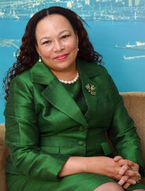
HE Robina Patricia Marks in focus
ROBINA Patricia Marks was born in Cape Town on January 21, 1963, and was educated at Bellvile South High School, University of the Western Cape (B.A Honors: Sociology, Teacher’s Diploma); the University of Manchester’s Institute for Development Policy and Management (Advanced Diploma: Institutional Development); and University of Sussex’s Institute for Development Studies (M.A: Gender Studies).
Ms Marks was a student, community and trade union activist, a gender activist and a regional organizer of the United Democratic Front, a forerunner of the African National Congress. The anti-apartheid forum campaigned for the release of political prisoners and dropping bans on all political organizations. She was detained under the Internal Security Act 29 during the anti-apartheid struggle.
After the advent of democracy in 1994, Ms Marks served on the boards of various civil society organizations committed to deepening democracy and entrenching non-racism and non-sexism. These included the Development Action Group, Women’s College and the Saartjie Baartman Shelter for Women.
Ms Marks also worked as a change consultant to then Minister Manto-Shabalala Msimang (Minister of Justice); Head of the Office on the Status of Women in the Presidency, and as equity adviser to the Department of Environmental Affairs and the Development Bank of Southern Africa.
Internationally, she has worked on numerous assignments across Africa: Nigeria, Uganda, Madagascar, Ethiopia and Zimbabwe. She has also worked with the European Union’s mission in South Africa, UNIFEM and the Ford Foundation.
Ms Marks held various positions in non-governmental organizations as a researcher, race and diversity consultant, and lecturer. She was a visiting lecturer at the African Gender Institute, and a research fellow at Simmons College, Boston with a specific research interest on the politics and practice of identity politics in South Africa.
She was employed at the Department of International Relations as Chief Director: Gender in the Office of the Director-General. In this capacity, she was responsible for representing South Africa at the UN Commission on the Status of Women at the African Union Women’s Directorate, and the Southern African Development Community Gender Secretariat.
Within South Africa, she hosted, with the Progressive Women’s Movement and South African Women in Dialogue, several peace round tables with women in countries that were emerging from conflict.
She was also responsible for overseeing the development of South Africa’s National Action Plan for UN Resolution 1325.
In October 2011she accepted an invitation to join South Africa’s diplomatic corps, and on the advice of the Minister of International Relations and Cooperation, she was appointed Ambassador to Thailand. She took up her assignment in Bangkok on 23 March, 2012.
ROBINA Patricia Marks was born in Cape Town on January 21, 1963, and was educated at Bellvile South High School, University of the Western Cape (B.A Honors: Sociology, Teacher’s Diploma); the University of Manchester’s Institute for Development Policy and Management (Advanced Diploma: Institutional Development); and University of Sussex’s Institute for Development Studies (M.A: Gender Studies).
Ms Marks was a student, community and trade union activist, a gender activist and a regional organizer of the United Democratic Front, a forerunner of the African National Congress. The anti-apartheid forum campaigned for the release of political prisoners and dropping bans on all political organizations. She was detained under the Internal Security Act 29 during the anti-apartheid struggle.
After the advent of democracy in 1994, Ms Marks served on the boards of various civil society organizations committed to deepening democracy and entrenching non-racism and non-sexism. These included the Development Action Group, Women’s College and the Saartjie Baartman Shelter for Women.
Ms Marks also worked as a change consultant to then Minister Manto-Shabalala Msimang (Minister of Justice); Head of the Office on the Status of Women in the Presidency, and as equity adviser to the Department of Environmental Affairs and the Development Bank of Southern Africa.
Internationally, she has worked on numerous assignments across Africa: Nigeria, Uganda, Madagascar, Ethiopia and Zimbabwe. She has also worked with the European Union’s mission in South Africa, UNIFEM and the Ford Foundation.
Ms Marks held various positions in non-governmental organizations as a researcher, race and diversity consultant, and lecturer. She was a visiting lecturer at the African Gender Institute, and a research fellow at Simmons College, Boston with a specific research interest on the politics and practice of identity politics in South Africa.
She was employed at the Department of International Relations as Chief Director: Gender in the Office of the Director-General. In this capacity, she was responsible for representing South Africa at the UN Commission on the Status of Women at the African Union Women’s Directorate, and the Southern African Development Community Gender Secretariat.
Within South Africa, she hosted, with the Progressive Women’s Movement and South African Women in Dialogue, several peace round tables with women in countries that were emerging from conflict.
She was also responsible for overseeing the development of South Africa’s National Action Plan for UN Resolution 1325.
In October 2011she accepted an invitation to join South Africa’s diplomatic corps, and on the advice of the Minister of International Relations and Cooperation, she was appointed Ambassador to Thailand. She took up her assignment in Bangkok on 23 March, 2012.

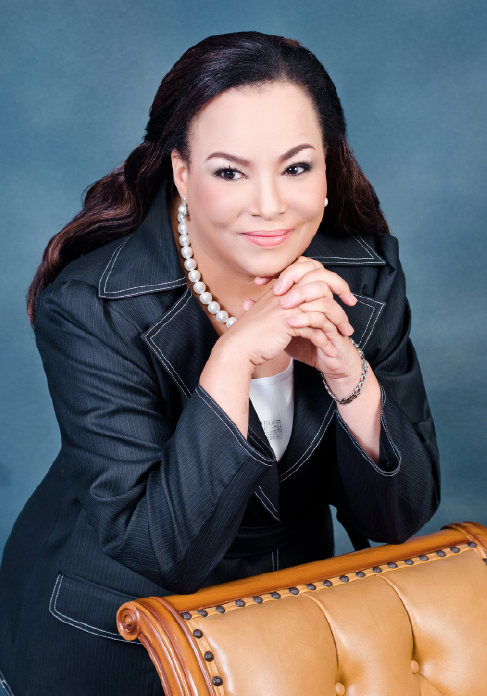
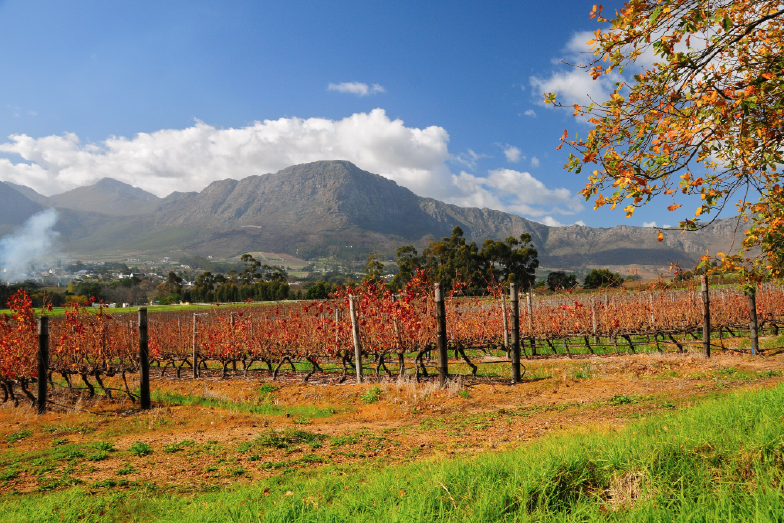
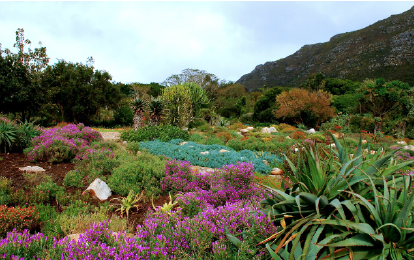
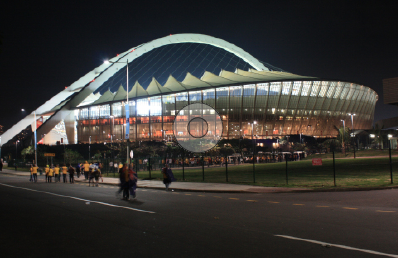
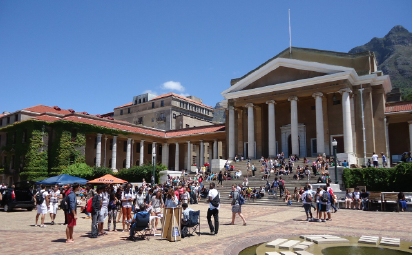
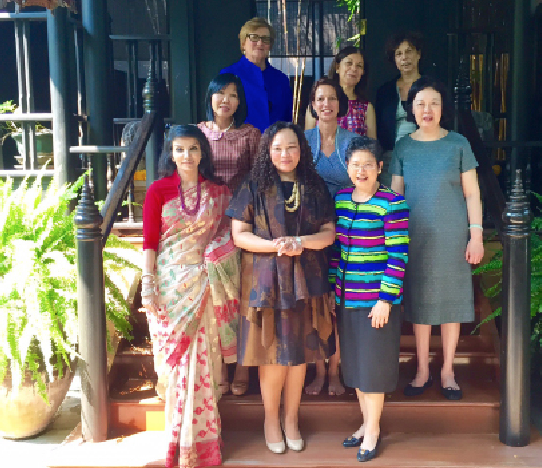
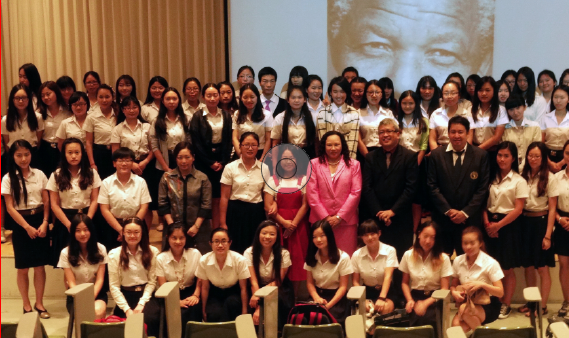
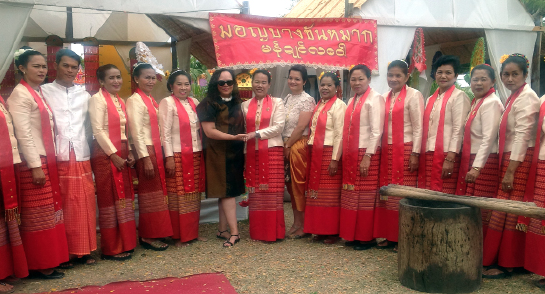
 RSS Feed
RSS Feed
















